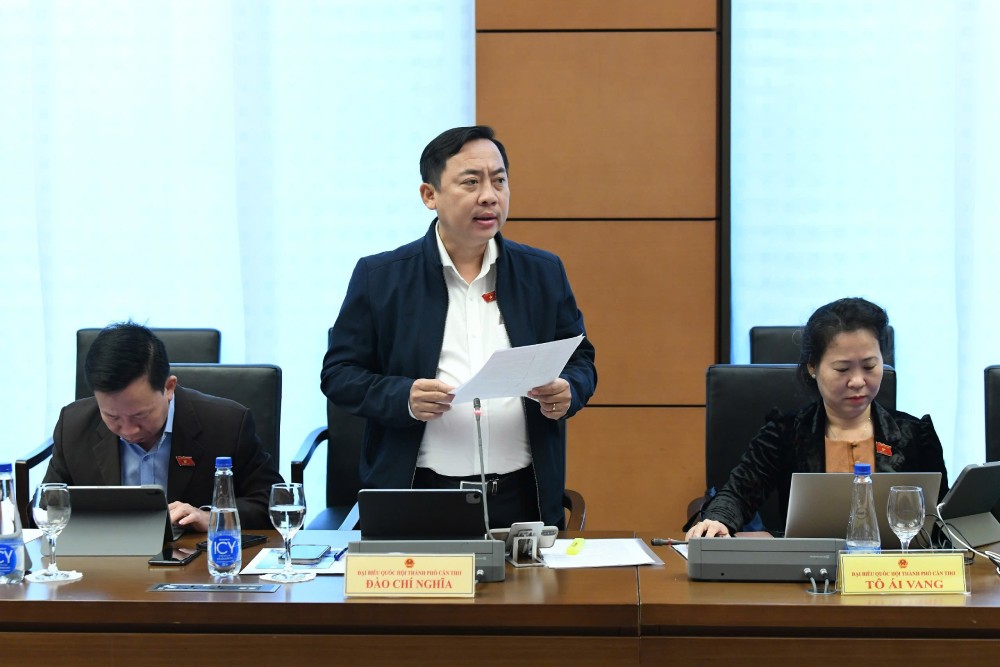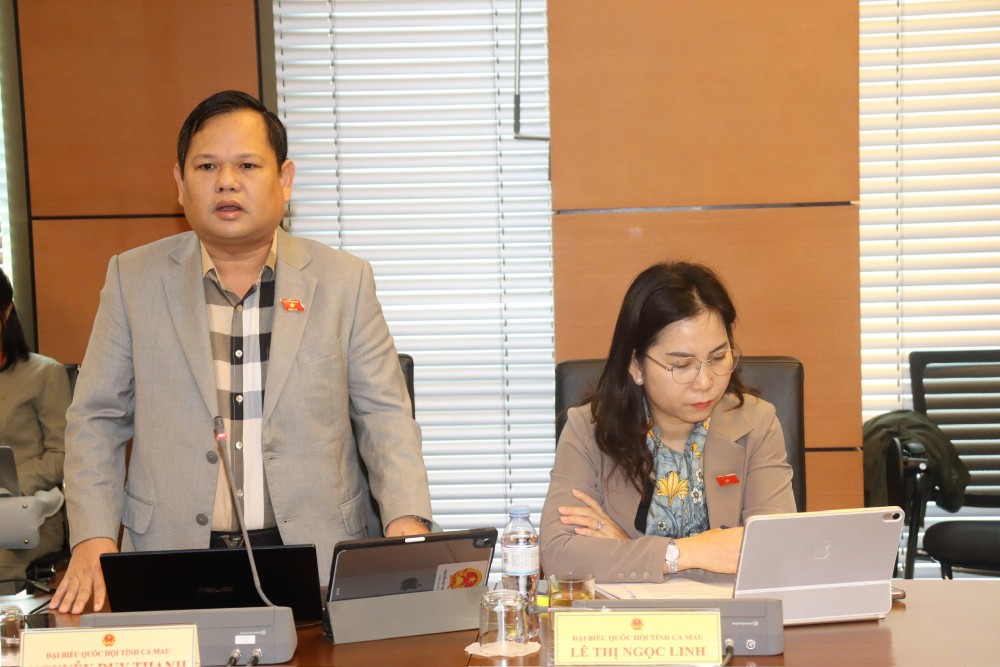On November 6, the National Assembly discussed in groups the draft Law amending and supplementing a number of articles of the Law on Geology and Minerals.
Supporting the policy of transferring the authority to grant licenses for exploration and exploitation of group II minerals to the Chairman of the Provincial People's Committee, delegate Dao Chi Nghia (Can Tho delegation) expressed concern that group II minerals are still a group of valuable minerals and the exploration and exploitation process is very complicated.
Dical decentralization can lead to risks in the local management process, the delegate worried and suggested that it is necessary to adjust and have the supervision of the Ministry of Agriculture and Environment (MONRE) in controlling technical quality. In particular, it is necessary to adjust the regulation in the direction that: the granting of a license to explore and exploit group II minerals must be approved in writing by the Ministry of Agriculture and Rural Development for the exploration project, reserve reporting as well as the design of the mine facility, unless otherwise provided.
This regulation will be strict, creating supervision from central to local ministries and branches, said the delegate.

Also interested in this content, delegate Lo Thi Luyen (Dien Bien delegation) agreed with the policy of decentralization and delegation of authority; but suggested that we should still "be cautious", not "let loose" the locality to grant a license to explore and exploit type I minerals for precious metals.
According to the delegate's explanation, this is related to the issue of national master plan, to the issue of environmental protection.
"If we want to hand over to the locality for licensing of some of these group I minerals in the future, we will conduct a pilot in some places, but now we should not be able to release them.
Because of the exploitation of metals, we see that in this place and that place, when the exploitation is completed, it has left huge consequences for the environment. In reality, there are units and enterprises that have completed the exploitation but have not returned the land or restored the environment, said delegate Lo Thi Luyen.
Delegate Nguyen Duy Thanh (Ca Mau Delegation) was interested in solutions to remove the problem of shortage of sand for key national transport projects and works and stabilize prices of construction materials.

According to the delegate, this content has been proposed by major economic groups, in which it is necessary to conduct exploration, evaluation and exploitation of offshore sand in Vietnam's sea area to build strategic warehouses for this product.
The study and feasibility assessment of these activities have been reported by the corporations to the Government, but have not yet been implemented.
Therefore, it is necessary to quickly deploy the exploitation of sea sand to solve the shortage of sand for infrastructure development and stabilize the price of construction sand materials nationwide.
The delegate proposed assigning the Ministry of Natural Resources and Environment, the Ministry of Construction, and relevant agencies to urgently implement the assessment of the potential of sea sand as construction materials in Vietnam's coastal areas in the form of organizations and individuals conducting basic geological investigations on minerals.
Transfer the investigation results to the state management agency to conduct offshore sand mining steps, and at the same time deploy the construction of a strategic warehouse of common construction materials from sea sand.
Implementing the above contents will ensure the goal of stabilizing construction and filling sand prices in the long term, while ensuring a final solution to the shortage of sand for infrastructure development projects.











